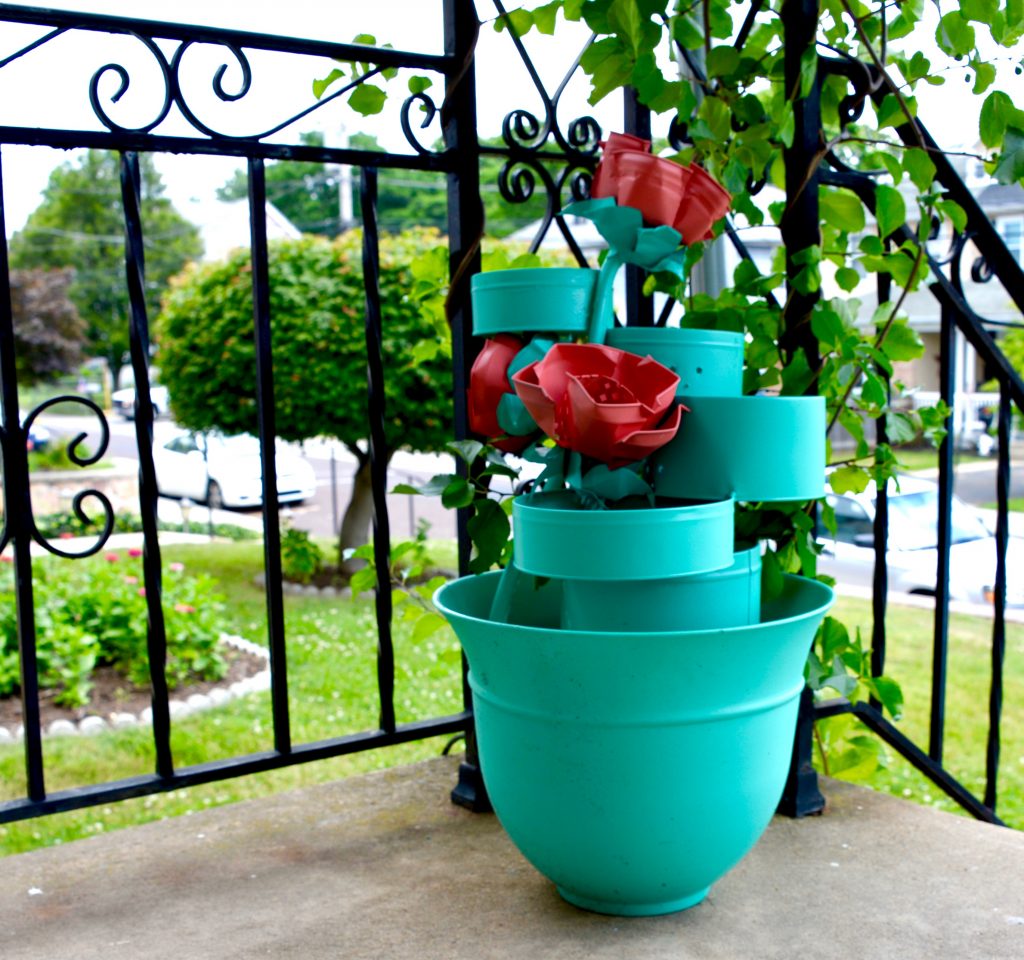Fire helped us repurpose cookie tins into a flower water fountain.
In search of objects for creating a flower water fountain for our front porch, we found a collection of Christmas cookie tins priced at 50 cents each at our local Habitat for Humanity ReStore.
While the connection might not be apparent to everyone else, I was inspired immediately to create a layering effect, building the tins one-by-one on top of each other, so the water could flow from tin to tin.
The DIY part. Mark and I needed to use our Bernzomatic torches and brazing rods to connect the steel cookie tins. A good way to check if you do this project is with a refrigerator magnet. If it sticks, you’ve got steel. To make all the pieces a single sculpture, we brazed them. Using Bernzomatic’s map gas (the yellow canister) and the awesomely awesome BZ8250HT torch head to make this flower water fountain, the map gas heats the steel enough to melt the brazing rods which forms a really strong connection. It was so much fun!
The design part. I had a vision to paint the tins so they would seem like lily pads. And while we were building the water fountain, and I was looking upon the lids discarded to the side, I was inspired by a vision of Monet’s water lilies. We needed flowers. So I cut and molded the tin lids into flowers that help create the finishing look for the modern industrial interpretation of Monet’s water lilies.
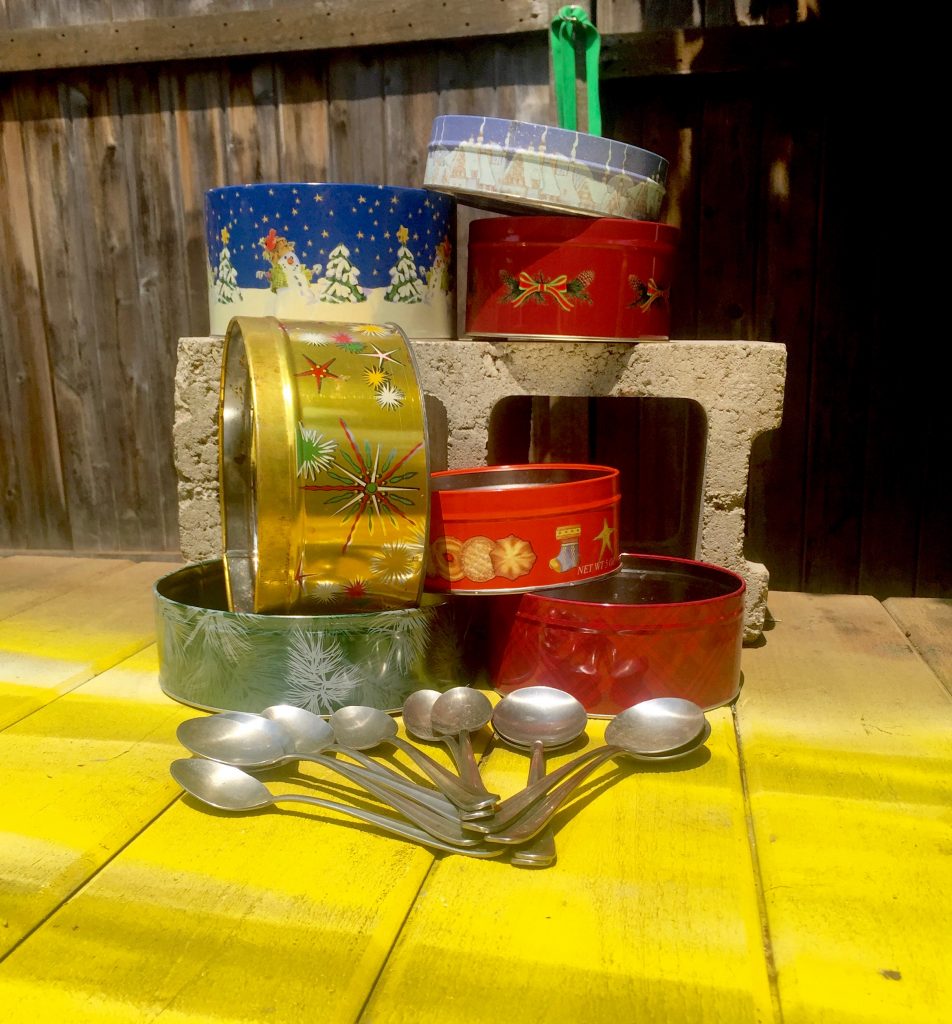

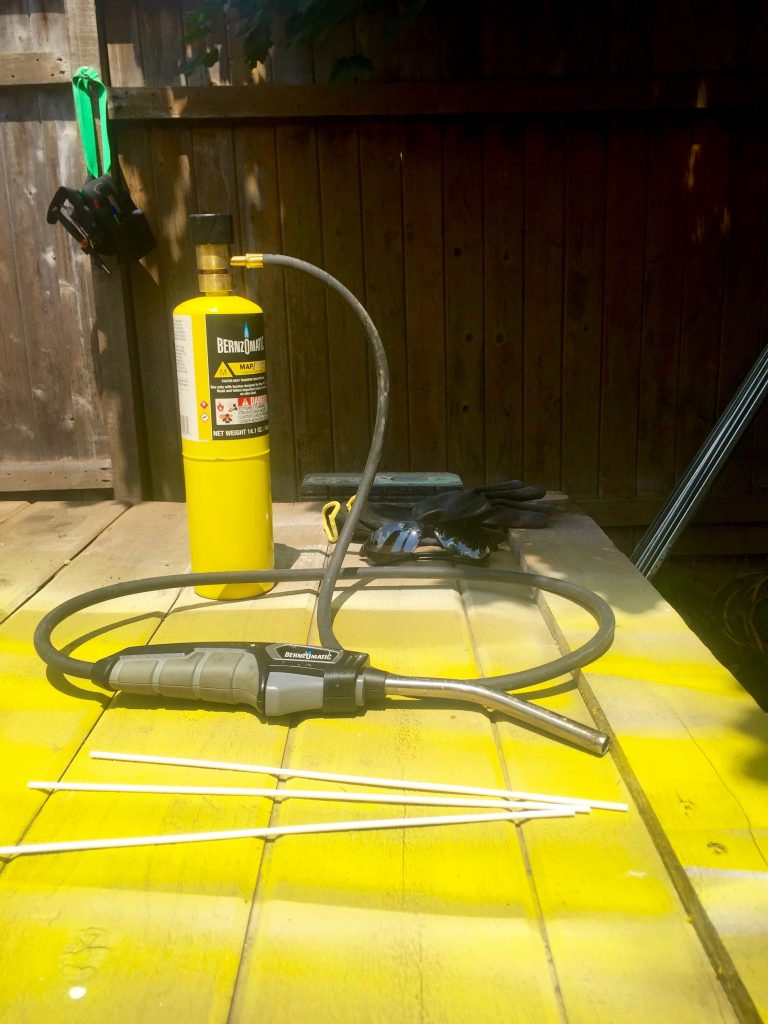

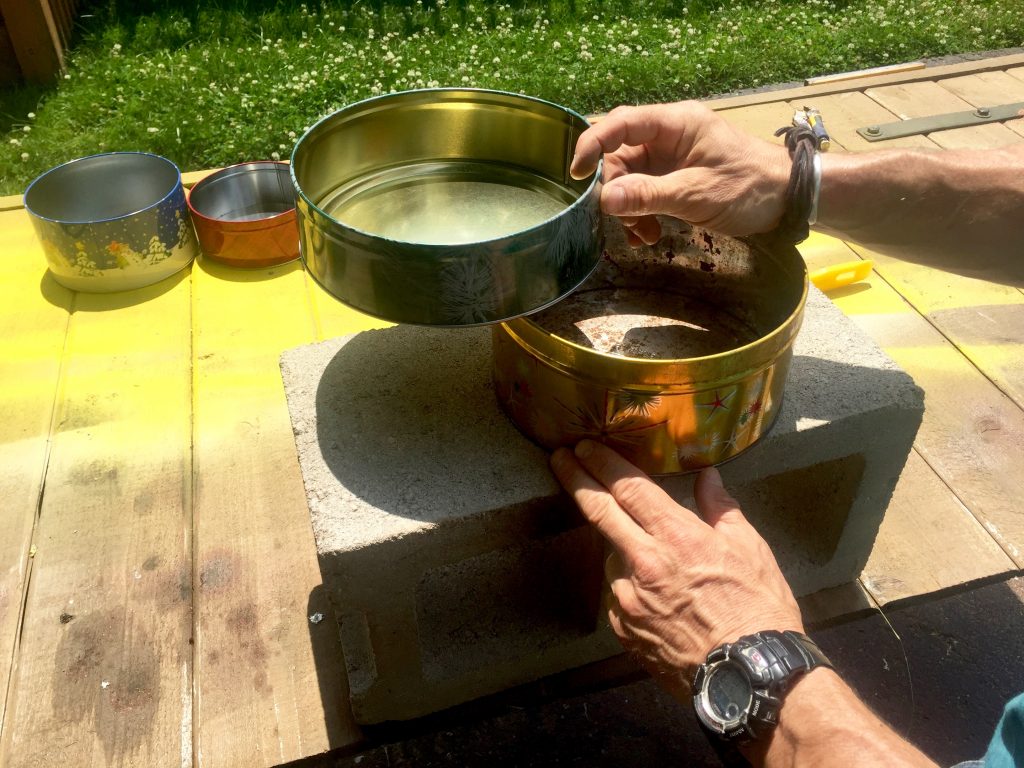

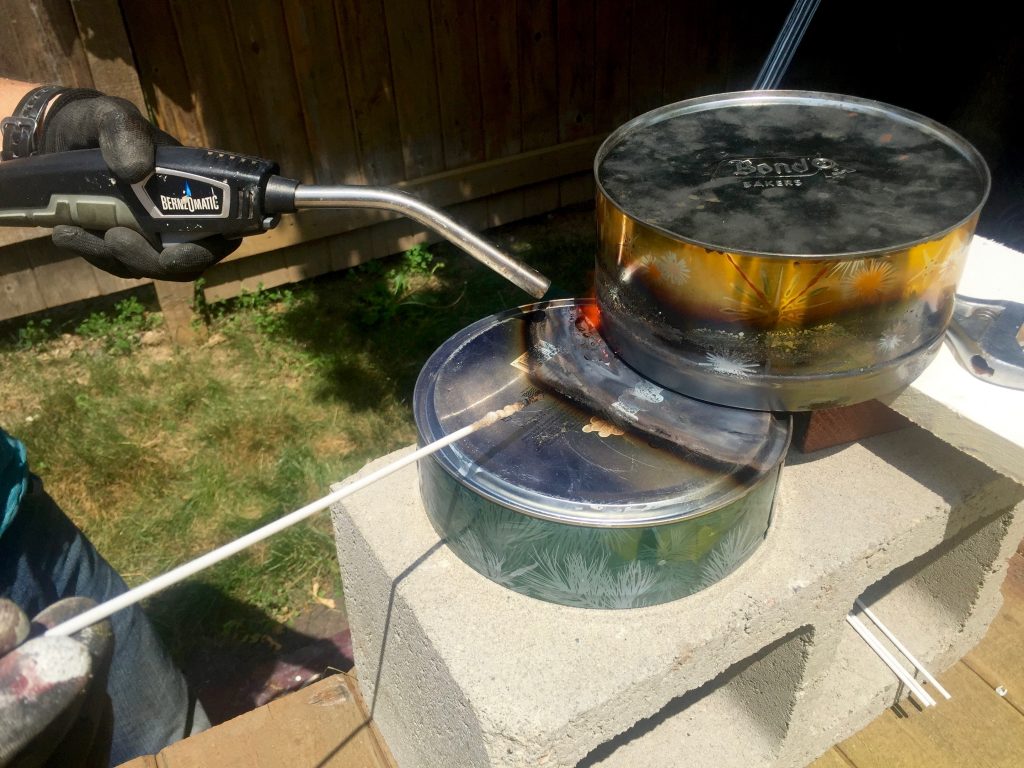

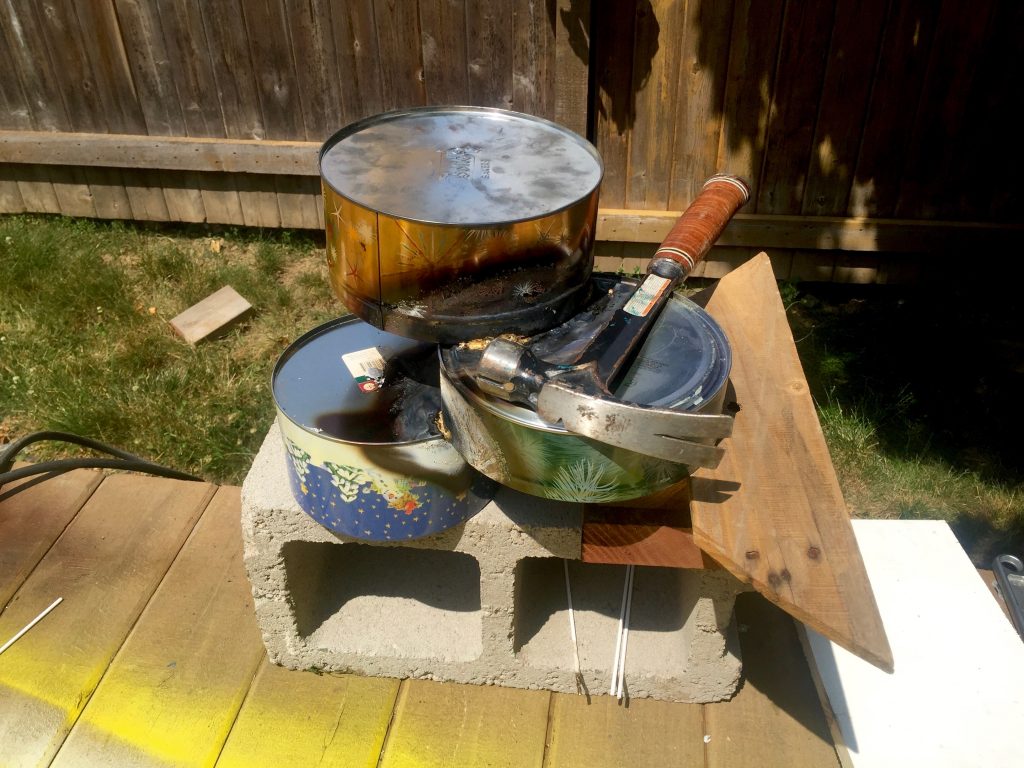

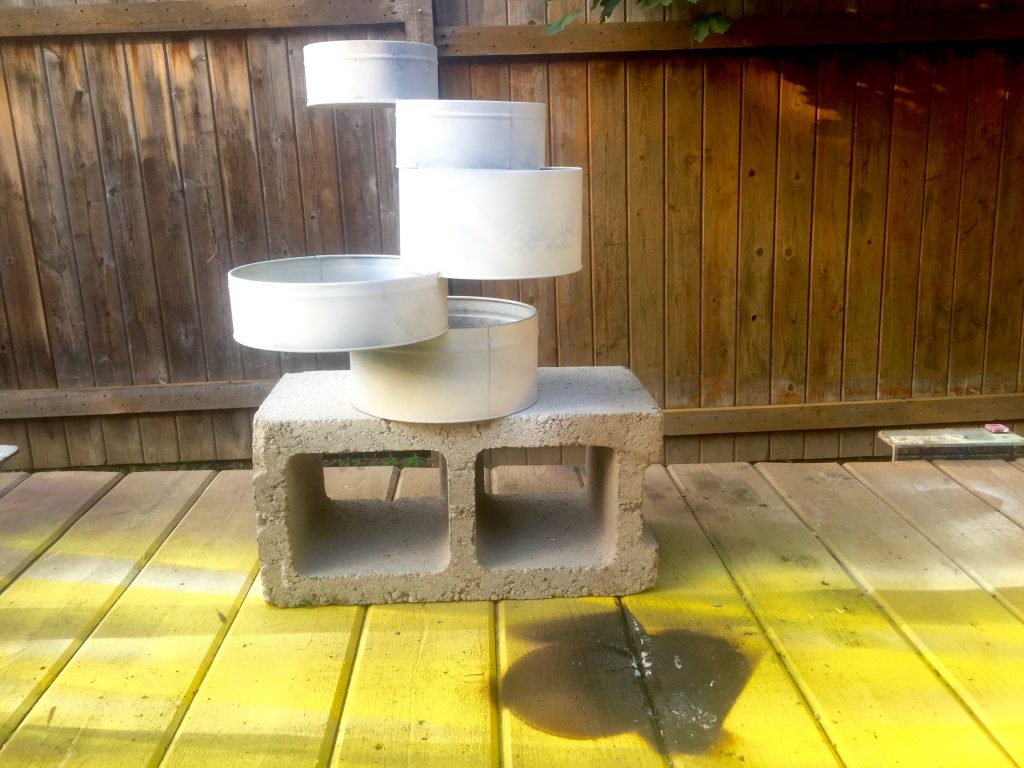

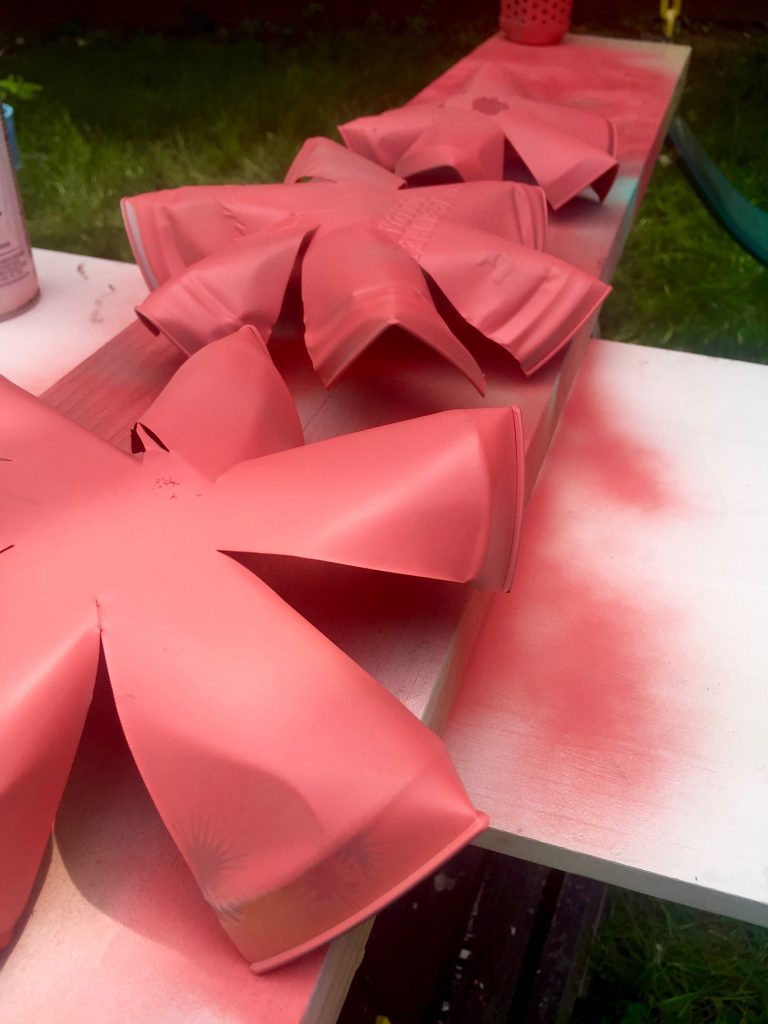

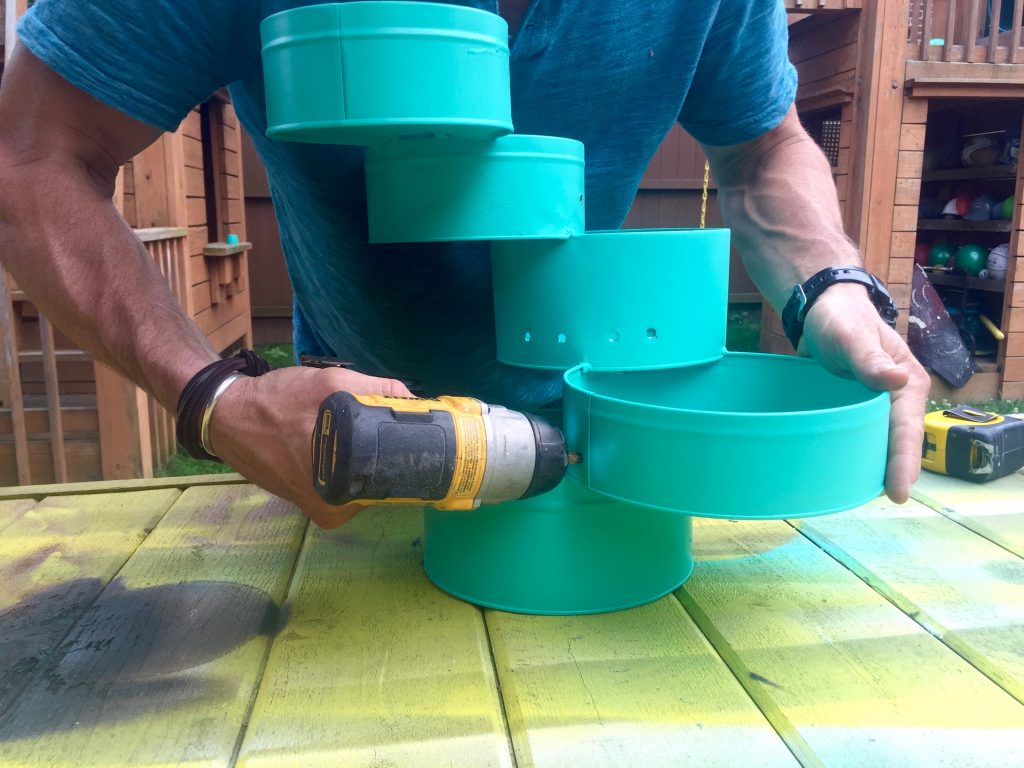

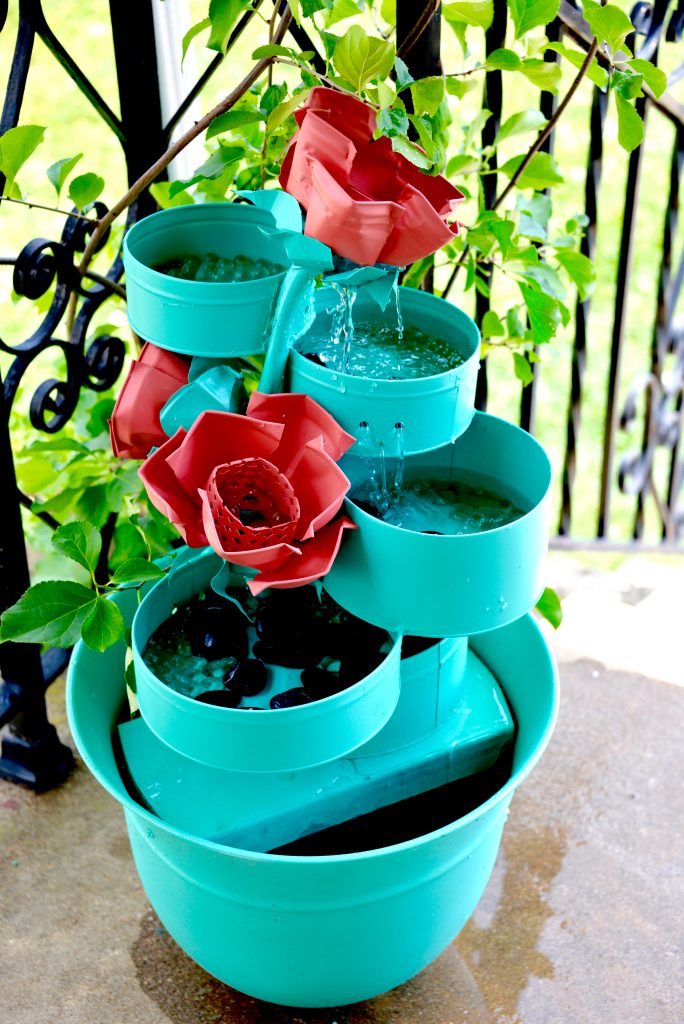

Save
Save

